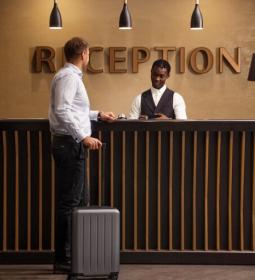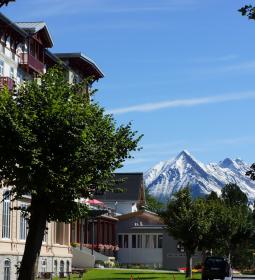Large international organizations are looking for future employees when they are still studying in the last years of American universities. Higher education obtained in the United States is valued by all employers and gives a high level of knowledge. It is the United States that accounts for a greater number of Nobel laureates, scientists and famous politicians.
American higher education institutions occupy a leading position in the world rankings, 11 of which are among the top twenty. The abundance of different specialties attracts the best applicants from all over the world, here you can find everything from creative professions to scientific ones.
Learning process
One of the important factors is the ability to make your own curriculum, in which the student can add subjects of interest to him in addition to the mandatory (basic). In US universities, you should not rush to choose a specialty: you have two years during which you have the right to change your main subjects. For successful and promising, there is an option of additional specialization - Minor:it may not be related to the main one, but it will be a big plus in your future resume. For the most diligent there is a double major program, in which you can choose several specialties at once and get diplomas on them.
American institutions are famous for a large number of internships for their students, where they gain practical experience for future work, which will make them more sought-after workers in the labor market.

The system of higher education in America includes:
- Bachelor's degree – Barchelor degree. After this stage, a person is considered an expert in his field and can already work in the profession.
- Master's degree . This stage is aimed at deepening knowledge or changing specialties.
- Postgraduate / doctoral studies - PhD or ScD. At this stage, you can become a teacher or conduct scientific research.
Usually, the bachelor's program takes place in four years, but the terms of study may vary depending on the characteristics of the specialty and the number of selected subjects. The master's program lasts one and a half to two years, and graduate school - three to six years.
Ranking system
Students' academic performance is assessed by the results of exams at the end of semesters, the protection of scientific projects and others. The rating system is usually five-point or letter (A, B, C, D, E). The Grade Point Average (GPA) score is numerical.
Types of universities
There are two types of universities in the United States: community college and universities.
- Community college: there you can get a professional education and an Associate degree.
- Universities provide the following programs: bachelor's, master's, postgraduate, MBA, certificate courses.

Duration of studying and holidays
The duration of a standard academic year may vary depending on the university, but most often studies begin at the end of August, and ends at the end of May. The school year itself is usually divided into two semesters of 18 weeks each, into trimesters or quarters. Also, many universities in America offer a summer semester lasting 6-8 weeks. This is a great opportunity to raise the level of your own knowledge to the necessary level in order to speed up the process of obtaining a diploma or relieve the academic year of a large number of academic hours. At least two vacations are organized during the academic year:
- two to four weeks of Christmas holidays
- in early March/mid-April.
Documents required for admission to US universities
To enter the bachelor's program, you will need the following package of documents:
- Completed application form
- Certificate or statement with grades for the last three years
- Certificate confirming the level of English language proficiency - IELTS or TOEFL
- Results of school curriculum proficiency exams – SAT or ACT
- Motivation letter
- Achievements outside of school, activity, scientific projects, volunteer activities, Olympiads, sports competitions
- Letters of recommendation from teachers
- Resume
- Portfolio (for creative specialties).










